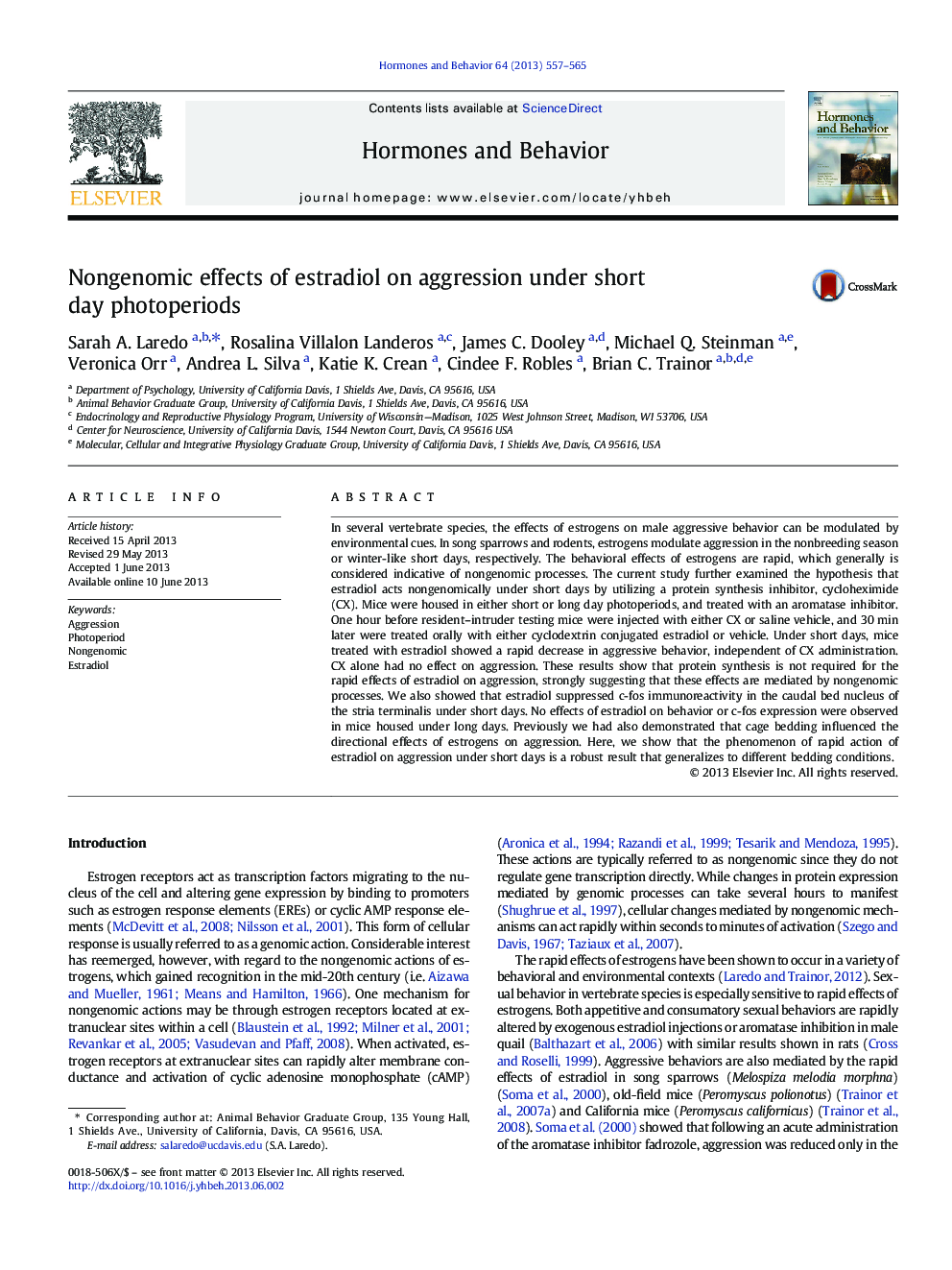| Article ID | Journal | Published Year | Pages | File Type |
|---|---|---|---|---|
| 10301105 | Hormones and Behavior | 2013 | 9 Pages |
Abstract
In several vertebrate species, the effects of estrogens on male aggressive behavior can be modulated by environmental cues. In song sparrows and rodents, estrogens modulate aggression in the nonbreeding season or winter-like short days, respectively. The behavioral effects of estrogens are rapid, which generally is considered indicative of nongenomic processes. The current study further examined the hypothesis that estradiol acts nongenomically under short days by utilizing a protein synthesis inhibitor, cycloheximide (CX). Mice were housed in either short or long day photoperiods, and treated with an aromatase inhibitor. One hour before resident-intruder testing mice were injected with either CX or saline vehicle, and 30Â min later were treated orally with either cyclodextrin conjugated estradiol or vehicle. Under short days, mice treated with estradiol showed a rapid decrease in aggressive behavior, independent of CX administration. CX alone had no effect on aggression. These results show that protein synthesis is not required for the rapid effects of estradiol on aggression, strongly suggesting that these effects are mediated by nongenomic processes. We also showed that estradiol suppressed c-fos immunoreactivity in the caudal bed nucleus of the stria terminalis under short days. No effects of estradiol on behavior or c-fos expression were observed in mice housed under long days. Previously we had also demonstrated that cage bedding influenced the directional effects of estrogens on aggression. Here, we show that the phenomenon of rapid action of estradiol on aggression under short days is a robust result that generalizes to different bedding conditions.
Related Topics
Life Sciences
Biochemistry, Genetics and Molecular Biology
Endocrinology
Authors
Sarah A. Laredo, Rosalina Villalon Landeros, James C. Dooley, Michael Q. Steinman, Veronica Orr, Andrea L. Silva, Katie K. Crean, Cindee F. Robles, Brian C. Trainor,
